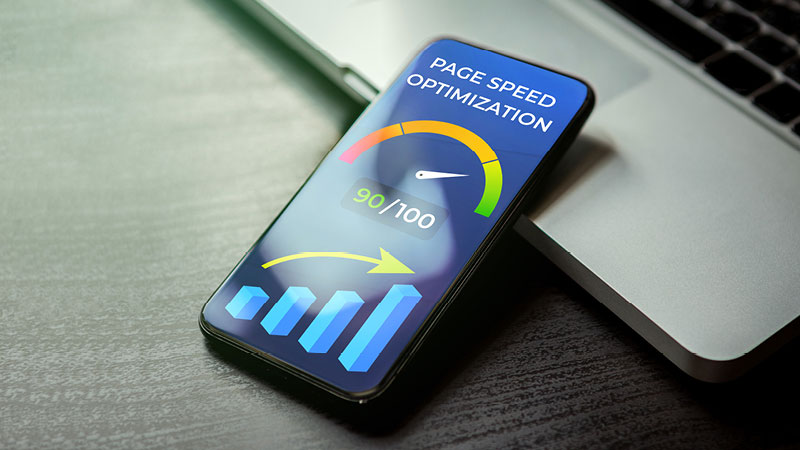According to an infographic produced by Kissmetrics, 3% of internet users want less than one second for a page to load and 30% of survey participants abandon the page after 6-10 seconds.
Why is Web Page Speed Important?
If you want a positive user-experience which results in good conversion rates, then it’s crucial you take page speed into consideration, as well as to avoid high bounce rates.
Websites that have a longer loading time, typically have a lower average time spent on the page. Moreover, when search engines perform a crawl, if your website has a slow page speed, the search engines can’t crawl as many pages using their allocated budgets, ultimately negatively impacting your website’s indexation.
How Google are Introducing Core Web Vitals as a Ranking Factor in 2021
As of June 2021, Google will be taking into consideration Core Web Vitals as a ranking factor. In essence, Core Web Vitals are a group of user-focused metrics that measure aspects of web usability. Safe-browsing, HTTPS – security, mobile friendliness and invasive interstitial guidelines, are all aspects of the Core Web Vitals upgrade that Google is working to prioritise.
What Factors Can Affect Website Speed?
Here’s the top 5 factors that could be holding back your website speed.
1. Poor Coding Standards
Websites that are developed with huge blocks of code that don’t really do much, often result in slow loading times. There are tools that can be used to correct coding errors but it is also possible to fix poor coding through line spaces and extra spaces.
2. Bad Server/Hosting
If your website has a significantly large database, then it won’t perform well on a shared hosting server. Additionally, when selecting a server, you should consider server response time, equipment and accounts per server.
3. Heavy Use of CSS and JavaScript
Both CSS and JavaScript files can cause your website to lag and become slower. You can try and stop this occurring by moving the tracking code and scripting to a below-the-fold location.
4. Poorly Sized Images and Files
If your images aren’t the correct size, for example larger than is needed, this can cause your page loading time to slow down.
5. Overuse of Plugins and Widgets
The more widgets and plugins on a website, the more the page loading time is slowed down. To still use widgets and plugins without unnecessarily slowing down your website, ensure that you only have ones you actually need and that the items are created by a reputable source.
How Can I Improve my Speed Index Score?
1. Optimise Your Images
File formats are vital to good page speed scores.JPEGs are commonly best for photograph imagery, while PNGs are mostly more suited to graphics with less than 16 colours. Additionally, ensuring that images do not exceed the size they’re required to be, will also improve your website’s speed index score.
2. Leverage Browser Caching
Ensure that you have an expiration date set for your cache to be cleared. This is necessary because internet browsers ache high volumes of information such as images and style sheets, so that when visitors return to your site they don’t have to reload the page.
3. Use a Content Distribution Network
Internet users will have significantly more reliable and fast access to your website through the use of CDN’s. Content distribution networks essentially store copies of your site at various data centres, across a wide range of geographical locations.
4. Reduce Redirects
When your website page redirects to another page, this increases the waiting for the user due to the HTTP request-response cycle awaiting completion. Too many redirects negatively affects the website load. It’s good practice to ensure your website’s crawl features links which point to the correct url destination.
5. Enable File Compression
You can obtain software applications to reduce the size of CSS, JavaScript and HTML files which are over 150 bytes – this should assist with improving your speed index score.
Ensure your Website’s Page Speed Index is Up to Scratch with MonkeyFish Marketing
The expert website development team at MonkeyFish can work with you and your business to ensure your website is running as it should. Our team features SEO and web developer experts who can collaborate with you when it comes to increasing your page speed index.
MonkeyFish is an experienced internet marketing company that provides a holistic approach.
Contact a member of our team or alternatively, you can call us on 01282 504730.



